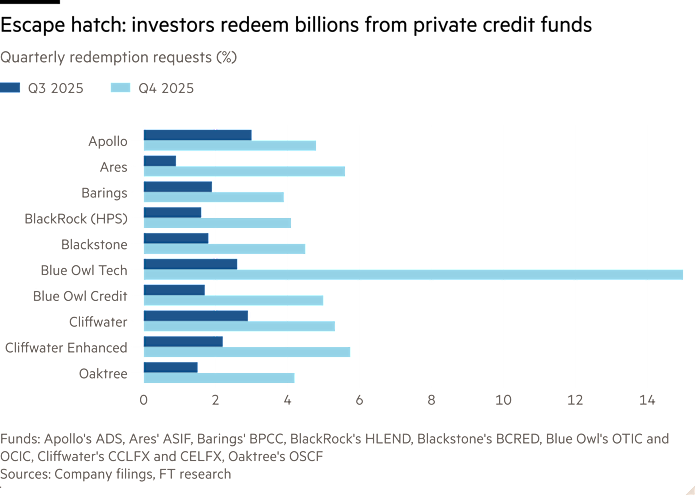Tuesday at Power & Market I described a certain type of soft and wobbly Mises Institute “supporter” who believes that the Mises Institute is not allowed to have standards. In the minds of these people, the Institute must publish articles that contradict the Institute’s core editorial positions in the name of “debate” and avoiding “dogmatism.” Apparently, it’s not enough that nearly the entire edifice of the American regime—along with academia and the legacy media— are opposed to the values and mission of the Institute. It’s not enough that one can read, virtually everywhere, commentary devoted to supporting the state, its socialism, and its wars. No, in the mind of these “supporters,” we are also required to make the case at mises.org for terrible anti-freedom ideas in the name of being open to debate.
Well, the fact is there are some topics that no longer require debate in the pages of mises.org. There is no libertarian case for carpet-bombing civilians. There is no free-market case for central bank digital currencies. Both of those things are simply wrong. Moreover, there are only so many hours in the day, and it would be both imprudent and a waste of time to create the impression that we believe one can make a case for barbaric and despotic policies. You might call my position on this “dogmatic.” I call it “having standards.”
Having standards also applies to deciding with whom we choose to represent the Mises Institute and its faculty. This fact has recently become controversial among some readers in the wake of the revocation of Walter Block’s Senior Fellow status at the Mises Institute.
In case you don’t keep up with this sort of inside-baseball minutiae, Block’s status was revoked due to a series of increasingly embarrassing and morally questionable policy positions. This was topped off by Block’s enthusiastic support for war crimes and ethnic cleansing in the State of Israel. (And yes, it is ethnic cleansing, as explained by foreign policy scholar John Mearsheimer.)
Perhaps the first serious sign of trouble came with Block’s vehement support for vaccine passports and mandates. In November 2020, Block came out in favor of the death penalty for those who refuse a vaccine mandate, writing: ”Would I compel [the unvaccinated] to get the vaccination on libertarian grounds? You’re darn tootin’ I would. Not so much to save them. That would be paternalism. But, rather, in order to save the lives of [those] who are vulnerable. If any [unvaccinated person] refused this vaccination, I would execute him...”
The next red flag was Block’s attempt—in his book The Classical Liberal Case for Israel—to declare that support for Zionism is a necessary condition of being in favor of private property at all. Or, as David Gordon put it: “They [i.e., Block and his co-author Alan Futerman] do not simply wish to defend Zionism, but to argue that opposing Zionism amounts to opposing private property rights in general.”
It is ironic that some Mises Institute authors (such as Hans-Hermann Hoppe) are nowadays accused of “excommunicating” Block when it is Block who is playing the excommunication game. It is Block who has effectively declared that anyone who disagrees with him on Zionism cannot be considered a supporter of free markets at all. Meanwhile, no one at the Mises Institute has said that opposition to Zionism is a necessary condition for supporting the concept of private property. It is Block who has staked out the extreme position and litmus test here.
The final straw, of course, was Block’s unrestrained support for the State of Israel’s ongoing war in Gaza. For one, in his article titled “Open letter to the children of Gaza,” Block is clearly unconcerned with rules of warfare like those outlined in the Geneva Conventions. Block defends targeting all children and parents in Gaza. Block insists—contrary to the facts—that all Gazan adults are members of Hamas, and thus are guilty of using children as human shields. According to Block, bombing children is therefore unavoidable, the parents are really the ones to blame, and those who drop bombs on apartment buildings are completely blameless. This is a typical amoral trick used by supporters of the Israeli state in this war. Only war criminals and their acolytes play these sorts of games with morality.
Not content with demanding that the Israeli government do whatever it wants to civilians in Gaza, Block also insists that the US government fleece its taxpayers to pay for more foreign aid to Israel. In a screed titled “Backstabbing Israel“ Block’s declares that the Biden administration’s attempt to “cut off weapons to Israel” amounts to “treachery” and that the US regime is obligated to supply weapons to the Israeli regime. Who pays for all this government largesse that Block demands? The US taxpayer, of course.
In the same article, Block then goes full neocon and invokes Chinese and Russian bogeymen in an effort to demonstrate why US taxpayers better pony up more free stuff for Israel, or else. Block writes: “Does the Biden Administration really want Israel to rethink its long, valued, and treasured relationship with the US? Does it not fear even the remote possibility that perhaps the only real democracy in the Middle East might edge closer to China and Russia?” Reading, this article, one might be tempted to think he has hired Paul Wolfowitz as his ghost writer. Or, as Joseph Solis-Mullen put it, “Block sounds as if he just had dinner with Robert Kagan and Victoria Nuland after pre-dinner drinks with Bill Kristol all while listening to a combination of speeches by John McCain and Tom Cotton.”
This sort of thing simply isn’t compatible with being a Senior Fellow at the Mises Institute, and it’s why it’s important to have standards. The title implies there is some level of general institutional agreement with the Senior Fellow’s body of work. Block, having loudly and publicly come out in favor of positions obviously contrary to the Institute’s Rothbardian positions in foreign policy makes the title of Senior Fellow problematic at best. Are there other Senior Fellows who are not in 100-pecent agreement with the Institute on this topic? I suspect the answer is yes. However, I have seen no other cases where one of our senior fellows has taken to the pages of the Wall Street Journal or Israeli publications to repeatedly demand that the Israeli state take a harder line against Palestinian civilians, all while calling for more taxpayer-funded foreign aid. Nor have other senior fellows demanded capital punishment for the unvaccinated.
All this said, I want to also note that Block is not “excommunicated” or “banned” from mises.org. As an editor I apply the same standards to Block that I would apply to anyone else: he is free to submit articles, and if those articles meet our editorial standards, we will print them.
At the same time, we don’t hand out Senior Fellow titles to everyone who writes a good article. Similarly, someone is not “banned” simply because we decline to refer to that person as a Senior Fellow.
It must be said, however, that Block’s past good writings about, say, deregulating taxicabs don’t entitle him to present “the libertarian case for ethnic cleansing” at mises.org. Some positions are just wrong, and that’s why editors exist—to ensure a publication has standards.
Full story here Are you the author? Previous post See more for Next postTags: Featured,newsletter





























